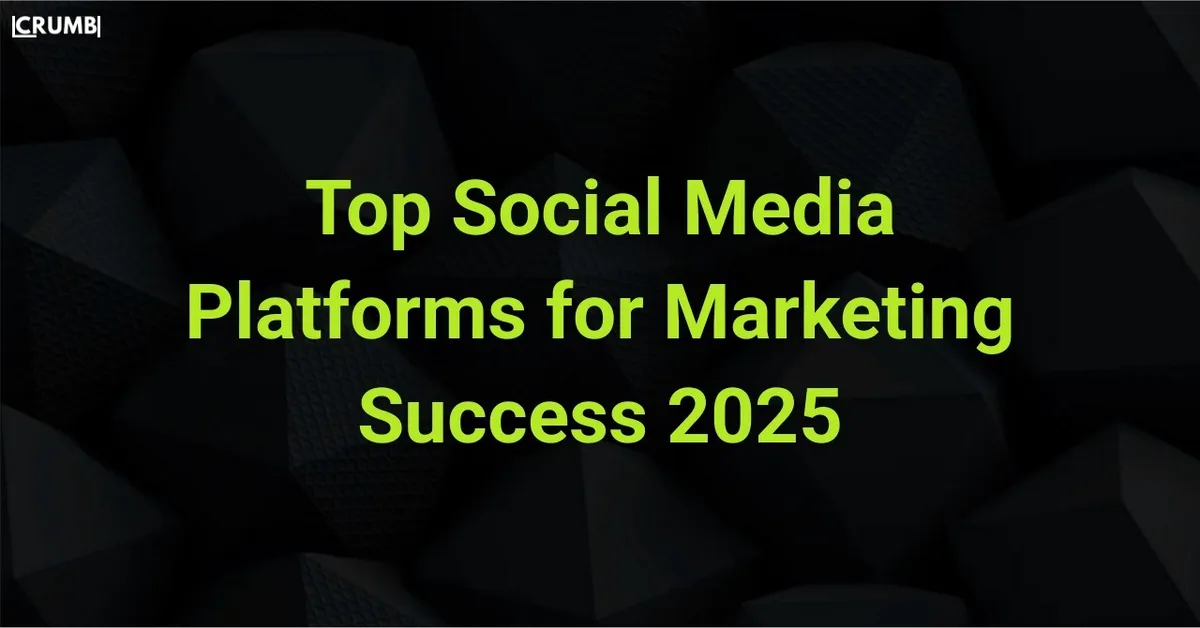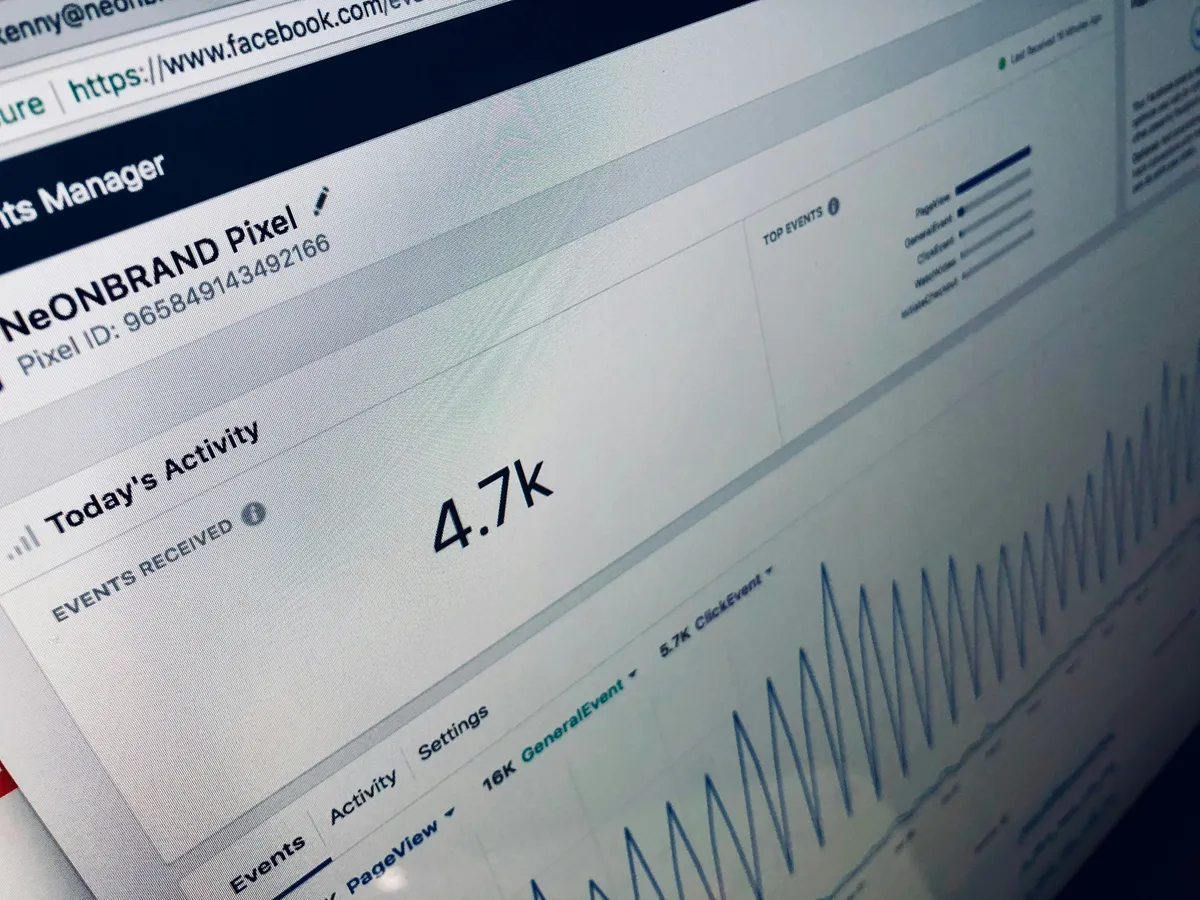Top Social Media Platforms for Marketing Success 2025
Discover the best social media platforms for marketing in 2025. Learn how to leverage Instagram, LinkedIn, and more to grow your brand effectively.

Social media has revolutionized the way businesses connect with their audience. With over 4.76 billion users worldwide as of 2024, these platforms have become a cornerstone for marketing strategies, offering unmatched reach and engagement.
What makes social media platforms so powerful for marketing is their ability to provide real-time insights and targeted engagement. By sharing compelling content, interacting with followers, and utilizing paid advertising, businesses can create meaningful connections with their audience. The sheer scale and accessibility of these platforms make them an essential tool for any brand looking to grow in today’s digital landscape.
Understanding how to strategically use these platforms can transform your marketing efforts, helping you reach the right audience and achieve measurable results. Social media isn’t just a trend—it’s a necessity for modern marketing success.
What Are Social Media Platforms For Marketing?
Social media platforms for marketing are digital channels that businesses use to engage audiences, promote brand identities, and drive growth. These platforms enable interaction through posts, comments, and live updates, creating opportunities to build relationships with customers.
Popular platforms include Instagram for visual storytelling, Facebook for diverse user engagement, LinkedIn for professional networking, and X (formerly Twitter) for real-time updates. Pinterest appeals to niche audiences through curated content, while Snapchat targets younger demographics with interactive features such as AR filters.
Each platform offers unique tools for marketers. For example, Facebook provides analytics for audience segmentation and ad performance, while Instagram's focus on aesthetics enhances brand visibility. LinkedIn supports B2B marketing through networking and lead generation.
Businesses select platforms based on their audience demographics, marketing objectives, and content strategies. For example, a fashion brand might prioritize Instagram due to its image-centric approach, while a tech company could benefit from LinkedIn's professional reach.
Integrating these platforms with targeted strategies, relevant metrics, and continuous audience engagement ensures effective marketing outcomes.
Benefits Of Using Social Media Platforms For Marketing

Social media marketing transforms how businesses connect with customers by offering extensive opportunities to enhance brand visibility, foster engagement, and maximize returns. Leveraging the right strategies leads to measurable growth in various areas.
Increased Brand Awareness
Social media platforms help expand audience reach by presenting content to millions of active users. Consistently sharing posts, videos, and stories enhances brand recognition, especially when paired with suitable hashtags and targeted audiences. For example, a startup using Instagram ads can reach relevant demographics quickly, amplifying its presence.
Improved Customer Engagement
Active engagement builds stronger relationships with customers through features like comments, direct messages, and stories. Interacting with followers not only humanizes a brand but also fosters trust and loyalty. Responding promptly to feedback or questions through platforms like Facebook or LinkedIn ensures open communication, encouraging repeat interactions.
Cost-Effectiveness
Social media marketing offers a comparatively affordable alternative to traditional advertising. Platforms provide free account setups, and cost-efficient paid ads for precise audience targeting. A small business allocating $100 towards Instagram promotions can effectively compete with more extensive campaigns by focusing on specific age groups or locations.
Top Social Media Platforms For Marketing
Social media platforms offer unique opportunities to connect with audiences, promote products, and grow brand presence. Here's a breakdown of leading platforms tailored for marketing strategies.
Facebook, with over 2.27 billion monthly active users, provides comprehensive targeting options through its Ads Manager. Marketers can segment audiences by age, location, gender, interests, and behaviors.
Its versatility supports businesses across industries, from posting engaging content to hosting live events. Facebook's diverse tools, like groups and events, foster community building, while analytics provide actionable insights for optimizing campaigns.
Instagram excels at visual storytelling with features like Stories, Reels, and carousel posts. It ranks among the top social media platforms, used by 79% of marketers in 2024. Brands can leverage its algorithm, prioritizing engagement through likes, shares, and comments.
The platform caters well to the lifestyle, fashion, and food industries by enabling in-app shopping and partnerships with influencers. Consistently posting quality visuals drives audience interest and loyalty.
Twitter (X)
Twitter, now rebranded as X, remains an effective channel for real-time engagement. Over 80% of customer service inquiries occur here, making it valuable for direct communication with audiences.
Marketers can amplify brand presence by utilizing trending hashtags and interacting within relevant topics. Features like polls and Spaces enhance audience interaction, while its ad options offer targeting for niches and event-specific campaigns.
LinkedIn, favored by 65% of marketers in 2024, serves as the go-to platform for B2B marketing. It's ideal for showcasing expertise, networking with professionals, and distributing thought leadership content.
Advertising options like Sponsored Content and InMail help businesses target industries, job titles, and company sizes. Sharing industry trends or offering solutions builds credibility and fosters relationships within professional communities.
TikTok
TikTok, with its dynamic short-form video content, targets Gen Z and younger millennials effectively. By 2024, it reached 1.08 billion users globally, generating ad revenues of $8.66 billion. Brands can use its viral trends and challenges to boost engagement.
TikTok's algorithm prioritizes viewer retention, so capturing attention within the first few seconds is critical. Industries like entertainment, beauty, and eCommerce benefit from TikTok's vibrant nature and shopping integrations.
Pinterest fits perfectly for visually-driven industries and eCommerce. With 87% of users purchasing an item after seeing it on Pinterest, it's ideal for driving decisive shopping actions.
Businesses can utilize rich pins, which enhance context with product details, recipes, or articles. By uploading high-quality, linkable images, marketers encourage traffic to product pages and attract potential buyers directly from the platform.
Strategies For Effective Marketing On Social Media
Adopting the right strategies ensures social media campaigns remain impactful and drive measurable results. By creating meaningful content, targeting a precise audience, and leveraging analytics, I can maximize my marketing efforts.
Content Creation Best Practices
Producing diverse, high-quality content drives engagement. Video posts, carousel images, and interactive stories perform best across platforms. For instance, TikTok videos capture attention quickly, while Instagram Stories build instant connections. Maintaining a consistent brand voice, using compelling captions, and incorporating interactive elements like polls or clickable links enhance engagement.
Posting regularly and aligning content with platform-specific features increases visibility. Additionally, leveraging SEO-driven content strategies, like those used by Crumb, ensures posts reach the right audience. By integrating keyword-rich captions and optimizing hashtags, brands can boost discoverability and maximize their marketing impact.
Targeting The Right Audience
Identifying the ideal audience optimizes campaign performance. I utilize audience demographics from social media insights to define characteristics such as age, location, and interests. Platforms like Facebook and LinkedIn, for instance, offer advanced targeting tools to reach specific user segments.
Crafting tailored campaigns ensures I engage users inclined to interact with my content, boosting qualified leads and conversions. By aligning marketing strategies with user behaviors on individual platforms, I minimize wasted resources and maximize relevance.
Utilizing Analytics And Insights

Analytics provide the foundation for informed decision-making. Platforms like Instagram and Facebook highlight key metrics, including engagement rates, follower growth, and audience demographics. By analyzing data, I identify top-performing posts and refine future strategies.
For example, Pinterest insights showcase pins driving eCommerce sales, while X offers metrics on tweet impressions and engagements for gauging real-time impact. Using insights to enhance campaigns helps me eliminate underperforming methods and build on what resonates most with the audience.
Challenges Of Social Media Marketing
Social media marketing offers immense opportunities but also presents unique challenges that can impact campaign success. Addressing these obstacles is essential for staying competitive and maintaining a strong online presence.
Algorithm Changes
Platforms regularly update their algorithms, directly affecting content reach and visibility. For instance, a shift in emphasis to short-form videos or engagement-based rankings often forces marketers to adapt strategies to align with new priorities.
If businesses fail to keep up with these updates, organic reach may drop significantly, diminishing audience interaction. Monitoring algorithm changes and adjusting content formats is crucial for maintaining consistent performance.
Managing Negative Feedback
Social media amplifies both praise and criticism, making managing online feedback a critical task. Public complaints and grievances can harm a brand’s reputation if ignored or mishandled. Swift responses, acknowledgment of concerns, and providing solutions help turn negative comments into opportunities to restore trust.
For example, responding professionally to customer dissatisfaction in a comment thread can prevent potential escalations and showcase a commitment to user satisfaction.
Competition Among Brands
With millions of posts circulating daily, standing out in a crowded digital landscape has become increasingly challenging. Competitors actively vie for the same audience segments, often using innovative content or paid ads to garner attention.
To compete effectively, brands must consistently deliver unique, high-quality content and target well-defined customer demographics. Competitive research and audience analysis play a vital role in developing strategies that differentiate a brand in saturated markets.
Conclusion
Social media has become an indispensable tool for modern marketing, offering businesses unparalleled opportunities to connect with their audience and drive growth. By leveraging the unique strengths of each platform and staying adaptable to challenges, brands can create meaningful, lasting impressions in an ever-evolving digital space.
Success lies in crafting targeted strategies, producing engaging content, and using data-driven insights to refine campaigns. With the right approach, social media isn't just a marketing channel—it's a powerful driver of business success.
Frequently Asked Questions
Why is social media important for business marketing?
Social media is essential for business marketing because it helps increase brand visibility, drive website traffic, and foster customer engagement. With its vast user base, it enables businesses to connect with target audiences, build trust, and promote their products or services effectively.
Which social media platform is best for brand awareness?
Platforms like Instagram and Facebook are ideal for brand awareness due to their large audiences and robust tools for visual storytelling, content sharing, and targeted advertising.
How does social media marketing benefit small businesses?
Social media marketing offers small businesses cost-effective advertising options, targeted audience reach, and the ability to compete with larger brands by building a strong online presence and fostering direct customer connections.
What is the role of content in social media marketing?
High-quality, engaging content is crucial in social media marketing. It helps businesses communicate their brand values, attract followers, boost engagement, and maintain audience interest.
How can businesses optimize their social media strategies?
Businesses can optimize social media strategies by creating relevant content, leveraging analytics to track performance, targeting specific demographics, and adjusting campaigns based on insights.